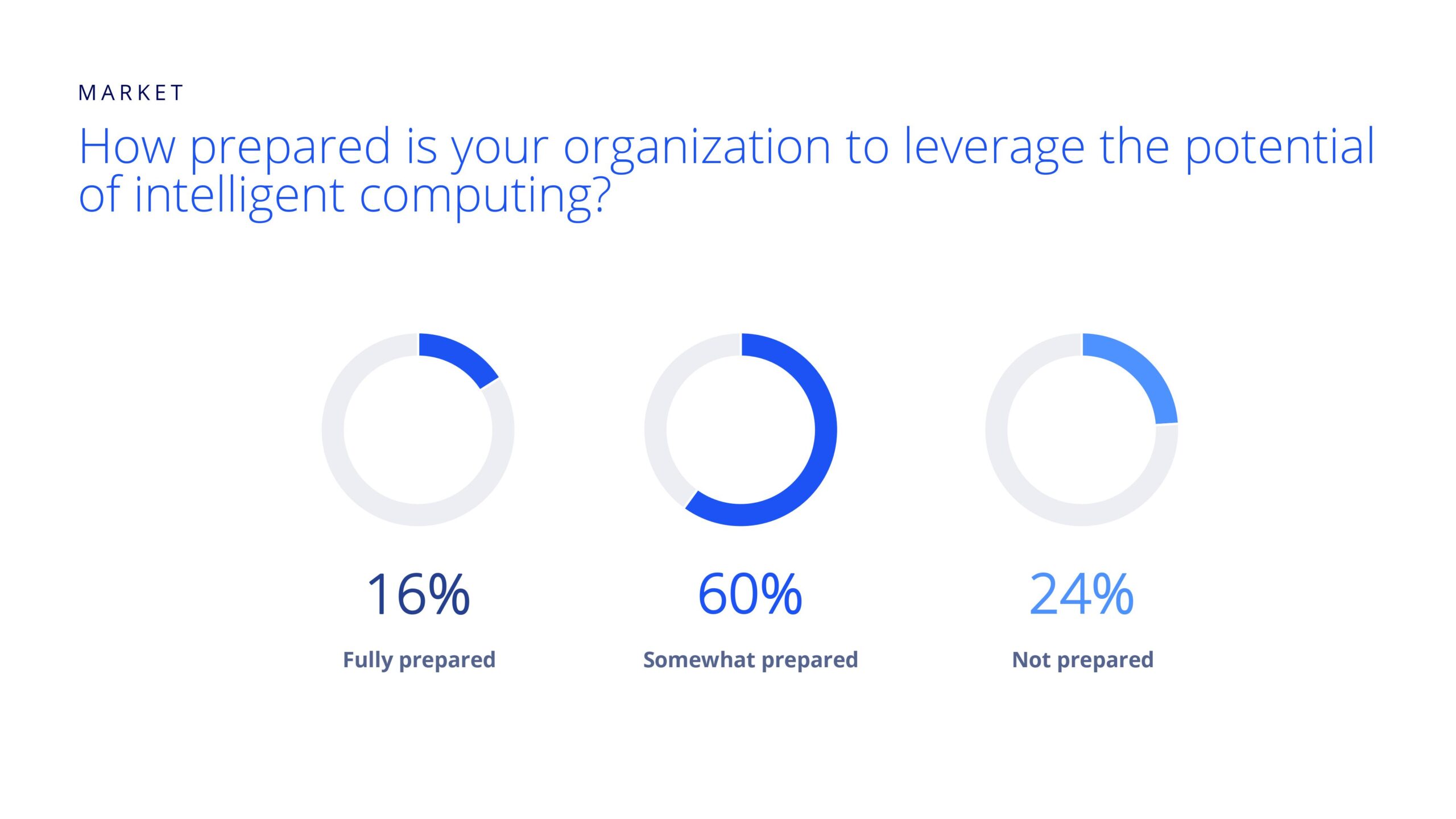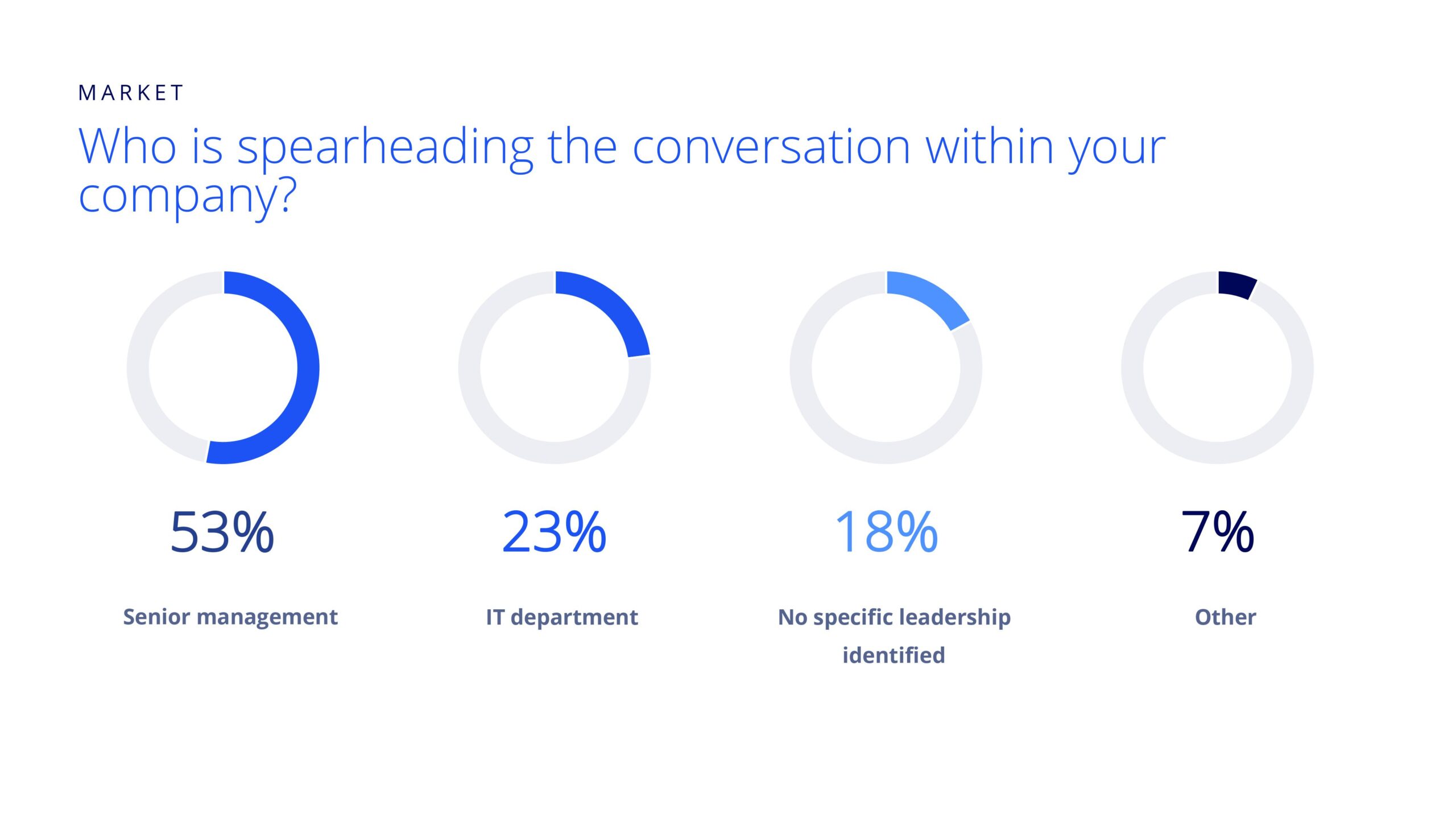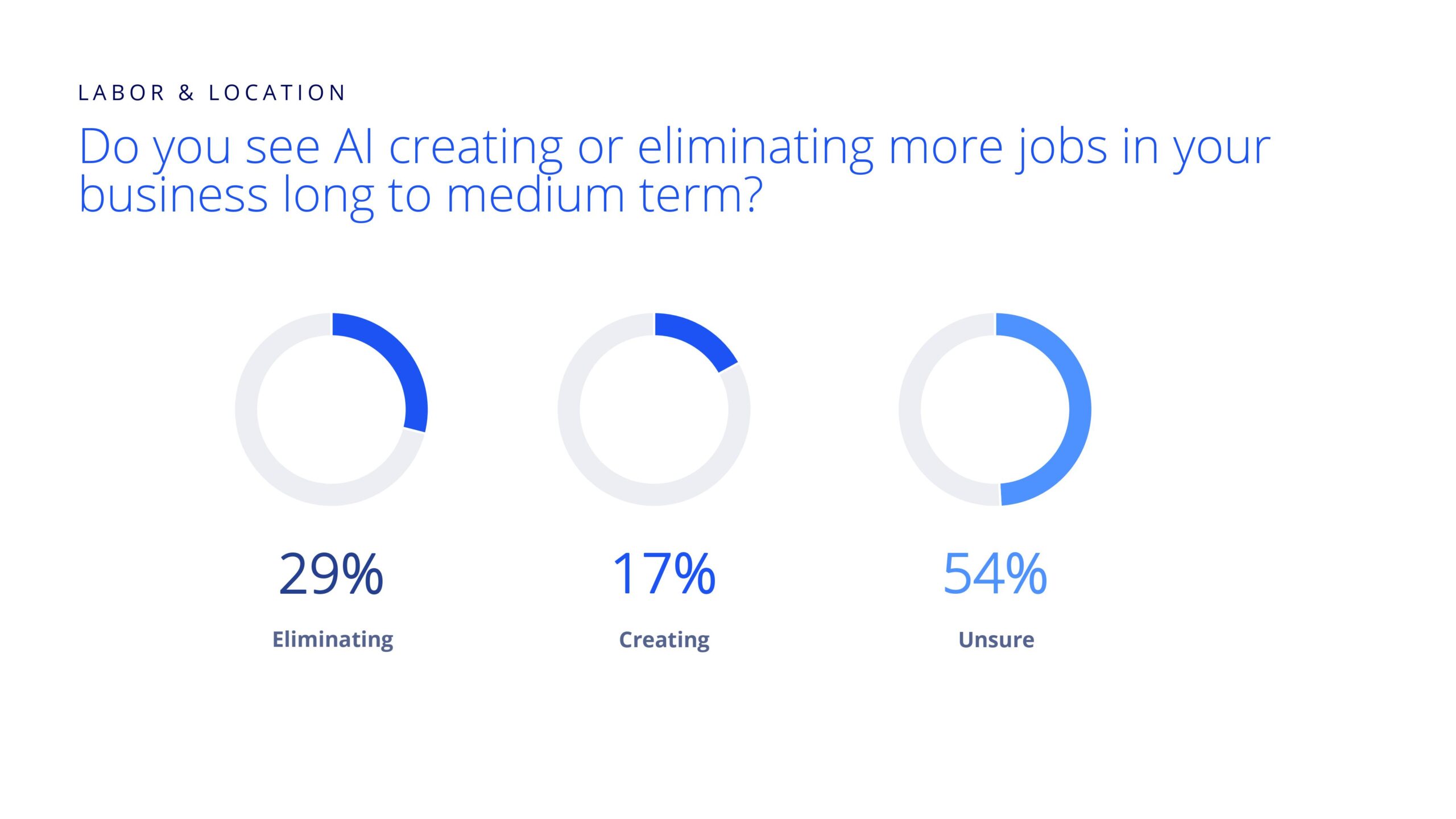Last month, Colliers’ Occupier Services hosted a CRExperts online session titled “AI in CRE: Untapping the Potential.” This session brought together industry leaders to explore the impact that artificial intelligence (AI) has had on commercial real estate (CRE) and the opportunities for the future. With a panel of Colliers experts, the discussion included the following key areas below:
Understanding AI – Hype vs. Reality
Adam McCormac, Colliers’ Global Head of Commercial Technology Services, provided a comprehensive overview of AI. It was noted that while AI is often hyped in marketing, its core principles of intelligent computing, such as machine learning, robotics, and predictive analytics, are tried, tested and have been around for much longer. The discussion highlighted key areas where AI is making significant strides, such as generative AI, which is gaining traction for its ability to curate structured and unstructured data in innovative ways. Emphasis was placed on the importance of understanding what AI can and cannot do, knowing where and when to invest and the necessity of having a clear data strategy in play to leverage AI effectively.
Based on the polling results, 16% of respondents believe their organization is fully prepared to leverage the potential of intelligent computing, while 60% feel somewhat prepared, and 24% feel unprepared. This indicates that although a majority are somewhat ready to integrate intelligent computing, a significant portion still don’t.
When asked who is spearheading the conversation about intelligent computing within their company, 53% of respondents indicated that senior management is leading the charge, 23% said the IT department, 18% noted that no specific leadership has been identified, and 7% mentioned other leadership. This suggests that in most organizations, senior management and IT departments are the primary drivers of discussions on intelligent computing.


Real-World Applications and Success Stories
Linda White, SVP, Head of Lease Administration and Technology Services, Occupier Services at Colliers, shared practical insights on how AI is being utilized in CRE today. She discussed advancements in smart buildings, where sensor technology combined with AI is being used to optimize energy use and manage occupancy. Linda also highlighted the use of AI in lease abstraction and invoice processing, areas where AI can significantly reduce manual effort and improve accuracy. She noted that the recent advancements in natural language processing and open AI are making these technologies more robust and scalable.
Predictive Analytics and Proactive Management
The discussion moved to AI’s future potential in CRE. Linda and Adam shared how AI could revolutionize data consumption and interpretation. By integrating predictive analytics, AI can help executives anticipate market changes, economic impacts, and environmental events, enabling proactive management of portfolios. This capability is particularly valuable in scenarios such as disaster response, where AI can provide real-time insights into the impact on properties and personnel.
Audience Engagement
Through live polls and Q&A throughout the session, one notable poll asked attendees whether they believed AI would create or eliminate more jobs. The results were varied, reflecting both optimism and concern. The World Economic Forum’s projection that AI will create 67 million new jobs by 2030 was a central point of discussion.
AI in Decision-Making and Location Strategy
Bret Swango, SVP of Workforce Analytics & Location Strategy, Occupier Services at Colliers discussed AI’s role in strategic decision-making, particularly in location strategy. By analyzing labor market trends and economic data, AI can help companies identify optimal locations for their operations. Bret emphasized the importance of aligning AI capabilities with business needs, ensuring that data-driven decisions are both informed and strategic.
When asked whether AI will create or eliminate more jobs in their business in the long to medium term, 29% of respondents believe AI will eliminate more jobs, 17% think it will create more jobs, and a striking 54% are unsure. This highlights a significant level of uncertainty about the impact of AI on employment within their organizations, underscoring the need for clarity as AI continues to evolve.

The impact of AI in the corporate real estate industry has been varied, according to our poll respondents. Some noted increased productivity and quicker decision-making, with significant improvements in legal tasks like drafting amendments and subleases. Others have seen a mix of job creation and elimination, with some focusing on workforce analytics and data verification. AI has also reduced the time required for new hires to add value. While a few observed negligible impacts so far, they anticipate significant changes in the next 5-7 years. Overall, opinions ranged from seeing no impact to expecting substantial developments in the near future, indicating a shift towards greater efficiency and improved information delivery.
Facility Management and Portfolio Optimization
Rick Kingery, SVP of Enterprise Clients, Occupier Services at Colliers shared his thoughts on how AI is streamlining facility management and portfolio optimization. He highlighted the use of AI tools to improve communications, reduce redundant tasks, and enhance research processes. For example, AI can quickly analyze landlord earnings calls to extract key insights, helping CRE professionals negotiate more effectively.
Collaborative Tools and Future Office Dynamics
The panel also explored the future of work and office dynamics in a world increasingly influenced by AI. Chris Zlocki, EVP, Head of Client Experience, Occupier Services at Colliers, raised thought-provoking questions about who will be in the office and what the office of the future will look like. The consensus was that AI would play a crucial role in creating more efficient and collaborative work environments, enabling real-time decision-making and enhancing productivity.
Next Steps
The CRExperts session highlighted the transformative potential of AI in CRE, emphasizing both the opportunities and the challenges. While issues like data standardization and the need for robust data strategies persist, the potential for AI to enhance efficiency and decision-making is immense. As AI technology continues to advance, its impact on CRE will undoubtedly expand, unlocking new avenues for innovation and growth.
For more personalized guidance and expertise on leveraging AI in your organization, connect with our team. We are ready to help accelerate the benefits of AI for your business.

 Martin Woodrow
Martin Woodrow Chris Zlocki
Chris Zlocki

 Katie Watts
Katie Watts
 Marianne Skorupski
Marianne Skorupski
 Brewster Smith
Brewster Smith